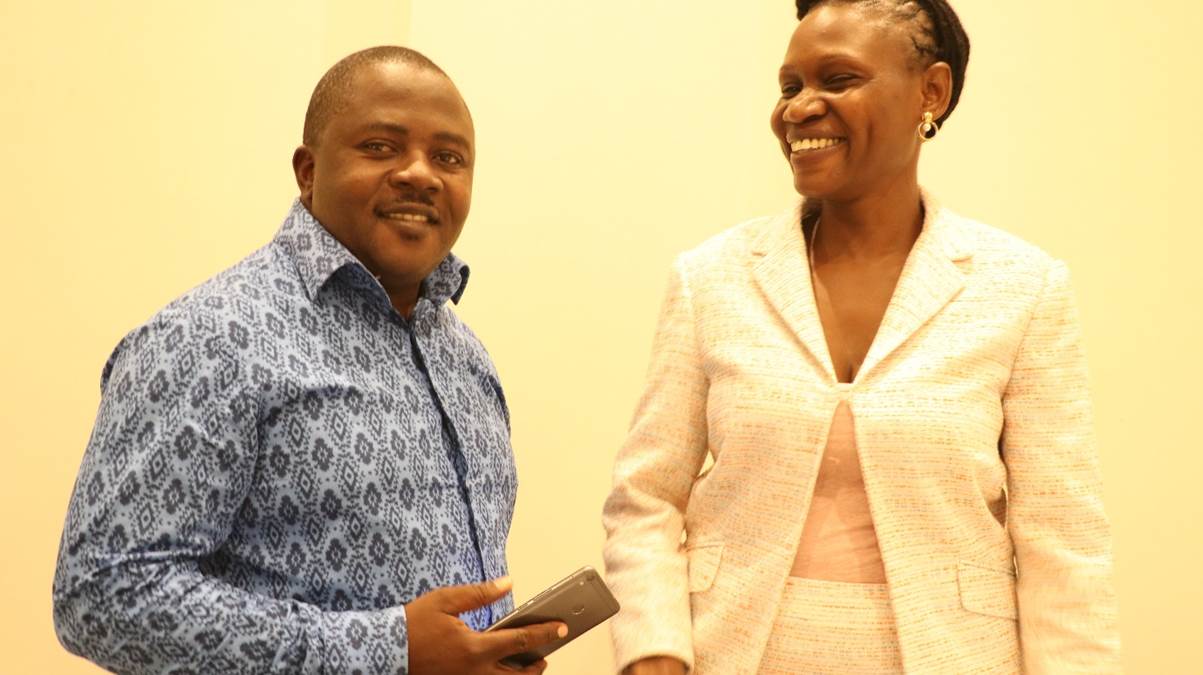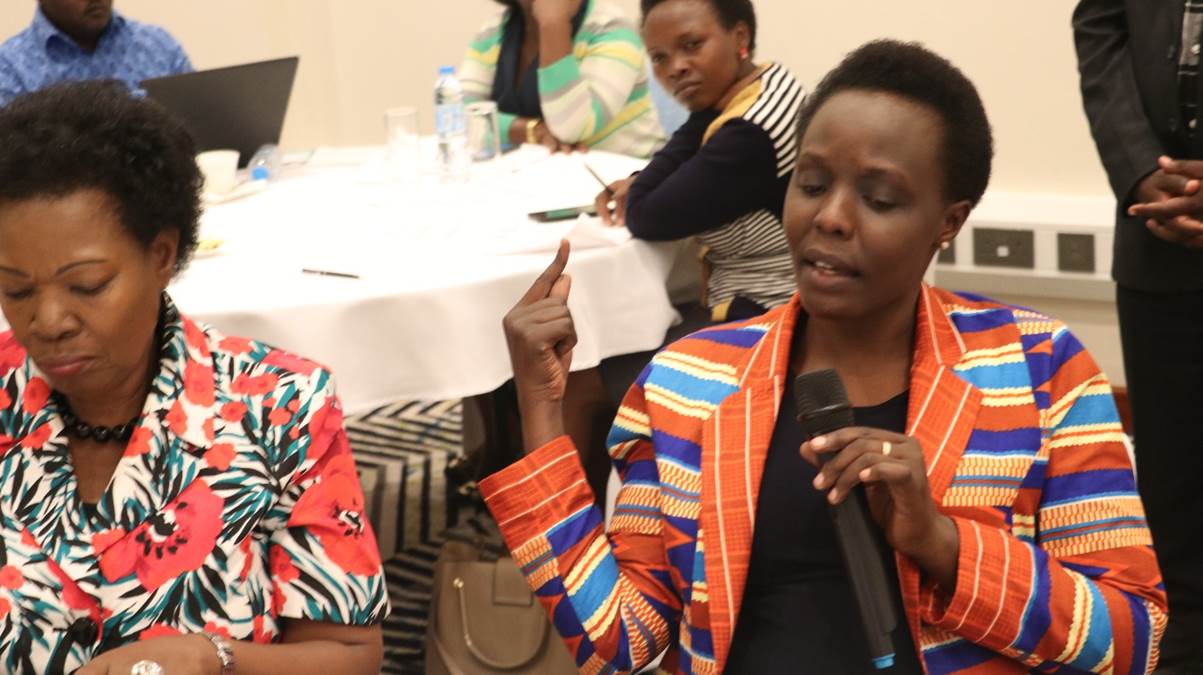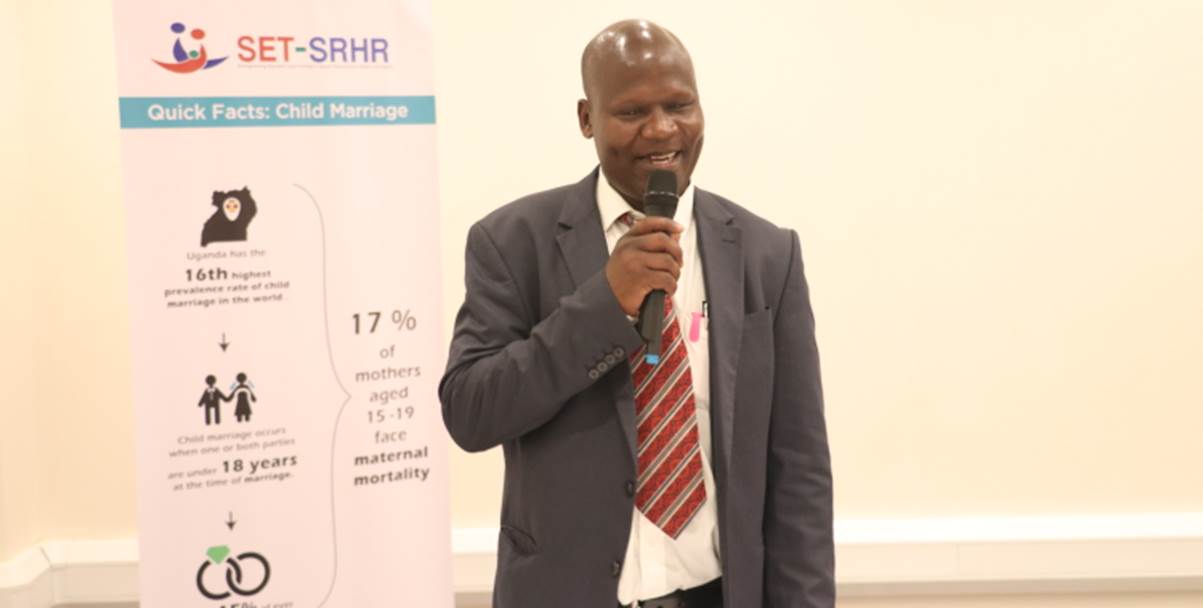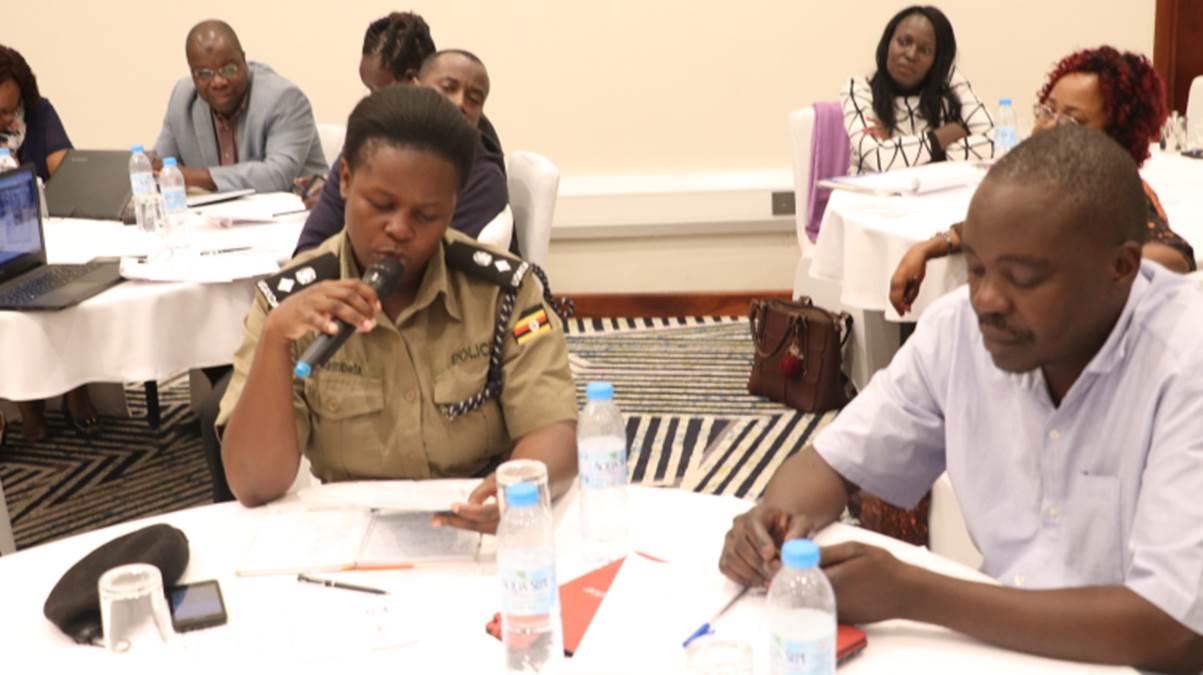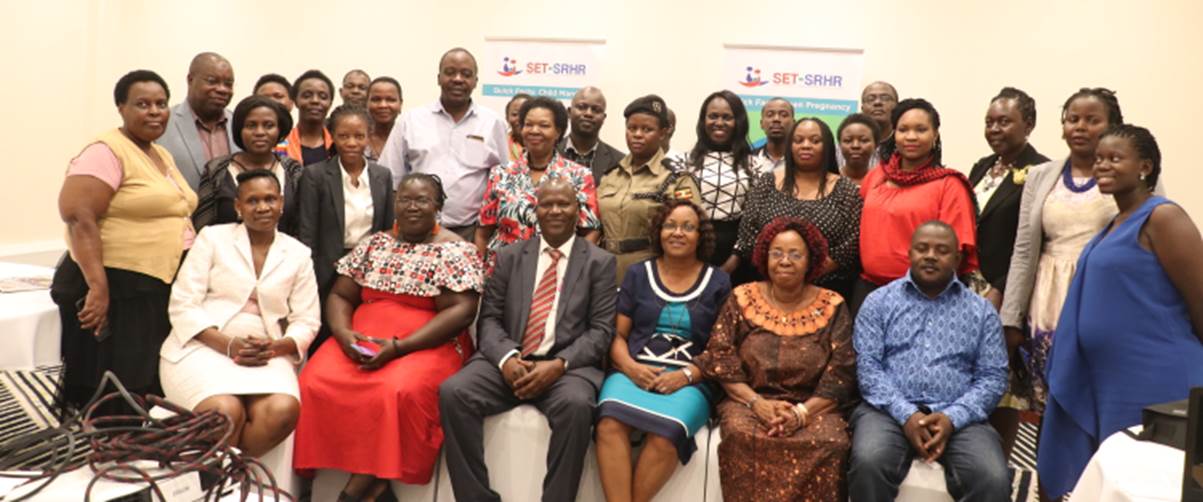
(Representatives from different sectors at the Stakeholders meeting that convened to call for the amendment of the customary law.)
On Friday 7th June 2019, Makerere University School of Public Health (MakSPH) in partnership with Nsamizi Training Institute for Social Development (NTISD) organised a Stakeholders Meeting to address the legal gaps and inconsistencies in relation to the age of consent for marriage. The meeting had Members of Parliament, Civil Society, policy makers, and Academicians who also held discussions around forging a way forward and finding common ground around this subject.
Speaking at the Hilton Garden Inn Hotel in Kampala, Ms Sherina Tibenkana a consultant of SET-SRHR (Strengthening Education and Training Capacity in Sexual and Reproductive Health and Rights in Uganda) Project, asked the policy makers to amend the current law on customary marriages. According to the Registration Act of 1973 Section 11a, the Customary Law indicates that females are considered ready for marriage at 16 years while for males, it is 18 years. Tibenkana noted that this law is gender-insensitive and discriminatory against females according to the Constitution of Uganda. In addition, she also pointed out that the customary law forces the girl-child to get married at the consent of their parents or guardians. Citing a case in Mayuge district where 8 and 7 year-olds got married in the presence of their families, she noted that children’s rights were violated according to the Children's Act yet no action was taken.
"Most marriages are initiated by parents who see it as a source of security and dowry. This is because the law doesn't criminalise child marriage. We therefore need to come up with clear provisions to tackle these issues,” Tibenkana urged.
In context to the region, Tibenkana called upon Ugandan policymakers to emulate other East African Countries like Kenya and Burundi who have amended their laws to stop early child marriage. Tibenkana also beseeched participants to remain committed in the fight against early child marriage since Uganda is a signatory of various human rights conventions.
Speaking about the effects of early child marriage, Tibenkana noted that it is a violation of their human rights besides being the driver of high maternal mortality rate. “Early marriages also expose vulnerable underaged victims to sexually transmitted diseases" she added. In this regard, she stressed the need for creating awareness about the dangers of early marriage since most people simply view it as an interference with their culture.
Way Forward-Tackling Early Marriage
As part of tackling early marriage, Dr. Elizabeth Nabiwemba from Makerere University School of Public Health and Director of SRHR highlighted that a lot of research and implementation is being done to inform policy and practice. Some of this research is already ongoing with their programmes already running in Kawempe Town council and Iganga District. In addition, she also noted that the project has a continuous curriculum development that has trained over 200 people to impact institutions with standard Sexual Reproductive Health Services.
Also at the meeting was Mr John Paul Edoku, a Senior State Attorney in the Ministry of Justice and Constitutional Affairs said he would be surprised if the Customary Law is not taken for Legal Interpretation. "The provisions are redundant, null and void, we need reforms since 16 years as the age for marriage consent contradicts the Constitution of Uganda " Mr Edoku said
In her presentation, Kumi Woman Member of Parliament Hon Amoding Monica said the Marriage Bill of 2009 is yet to be tabled again and it also consolidates amending the customary Marriage Act.
In his submission, the Executive Director of Reproductive Health Uganda, Jackson Chekweko said despite the fact that a lot of work has been done by various organisations, over 50% of all girls get married before 18 years and this calls for more action.
"We are aware of the consequences of early marriage, therefore, the issue of child marriage should be handled in a multi-dimensional perspective. We need to look at the social dimension, we can't only look at the legal means, we also need Ministry of Health, politicians, religious leaders and Ministry of Justice and Constitutional Affairs among others Chekweko said.
In her closing remarks, Hon Jovia Kamateeka, the Woman MP of Mitooma district said although the constitution is in place, there are other causes of early marriage that must be addressed.
"Why are most children getting married early? We have to be sensitive towards communities while supporting positive cultural norms and doing away with the negative ones like marrying off minors" Kamateeka said.
She also thanked MakSPH, Nsamizi Training Institute of Social Development and Reproductive Health Uganda for coming together to forge a way forward on age of consent of marriage in Uganda.
This meeting was attended by officials from the Ministry of Justice, Ministry of Gender, Labour and Social Development, Ministry of Health, Parliamentarians, JLOS and Uganda Police among others.
FACTS ON CHILD MARRIAGES ACCORDING TO SET-SRHR
Over 15% of women aged 20-49 who have ever been married entered this institution by the age of 15. 49% were married by the age of 18.
17% of mothers aged 15 face maternal mortality.
Uganda has the 16th highest prevalence rate of child marriages in the world.


